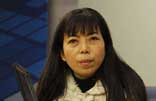Mediocrity the only product of copycats
Updated: 2011-11-08 08:01
By Berlin Fang (China Daily)
|
|||||||||||
As a recent article in The New York Times revealed, plagiarism has emerged as a problem among the newer crops of Chinese students on US campuses, many of whom are undergraduate students sent to the United States to study before they have developed the maturity to live and study independently in a totally new environment.
Faced with plagiarism charges, some students play the language card to explain their behavior, but such excuses are becoming increasingly lame, as US universities have stepped up their efforts to educate international students about academic expectations in the US.
One English professor explained that he is not interested in "perfect answers in perfect English", he assumes that the students, as non-native speakers, will not have perfect English, instead he said he is more interested in the students' own thoughts, even if they are expressed imperfectly.
This led me to think of an issue bigger than plagiarism, namely: do we dare to be original in our thoughts in the first place?
If we rely on parroting "correct" answers, how are we to develop the capability to come up with our own answers some day to address the increasingly complex problems we are going to face?
This is not only an issue faced by new students in a different culture. Mature middle-class elites in China are also lacking when it comes to originality.
I once worked for a leading consulting firm in China and I was baffled by urge of successful consultants to copy someone else's work or even lifestyle.
Our education system is the root cause of the problem, as it has deviated from teaching "the spirit to be independent, and the freedom of thought" as described by the historian and linguist Chen Yinque (1890-1969).
In recent years, there has been much debate about the question raised by one of China's leading scientists, Qian Xuesen (1911-2009), who asked: why aren't we producing leaders in their fields?
To produce such talents, we should not try to learn only from the accomplishments of other countries. Instead, we need to create the conditions that produce and encourage individual thinking.
To begin with we need to step out of the comfort zone of standardized testing. For all its advantages, standardized testing reinforces the mentality that there is only one correct answer to complex problems. Such testing fails to allow students to examine things from multiple perspectives and to come up with their own solutions. You cannot expect sophisticated solutions to complex problems to come from people who do not believe in their own unique talents.
Creativity and innovation are popular topics in the Chinese media right now, but how are we supposed to have these qualities without recognizing individual strengths and potential?
There is no use trying to produce the next Bill Gates, Steve Jobs, or Mark Zuckerberg unless we create conditions conducive to the unleashing of people's potential. The real shakers and movers of the world are rarely copycats.
If people fail to develop and realize their own unique thinking it is a slippery slope that can only end in mediocrity.
One only has to look at China's urbanization to see such mediocrity in action. Medium-sized cities are copying what bigger cities are doing, and smaller cities are copying from neighboring cities. Today, in the urbanization of China's countryside, I see local leaders trying to copy others, instead of figuring out their own strengths and specialties. It is extremely upsetting to me as I see places losing their individual character as they become merely a pale imitation of what is already a pale imitation.
We need to fight against such mediocrity.
The author is a US-based instructional designer and literary translator and columnist writing on cross-cultural issues.
(China Daily 11/08/2011 page8)




